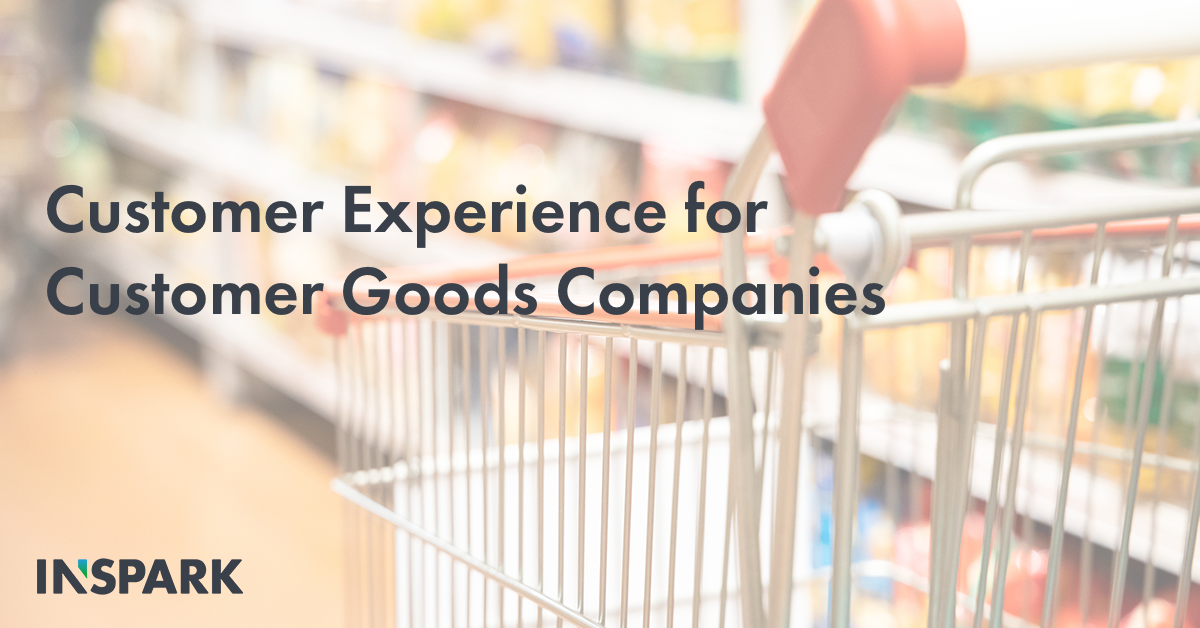
We call the entire process from the initial contact of the customer with a brand to the end of the service provided, as customer experience. This is a wide range of process and is at the heart of all businesses for companies desiring to achieve long-term results.
As the most important part of business life; this experience, which determines whether the relationship between the customer and the brand, brings loyal customers when it is successful. When it is the exact opposite, it creates serious problems for the prestige of the brand. Therefore, as INSPARK, we emphasize the importance of customer experience. So, we intended to prepare an article on this issue for you.
Customer Experience Transforms through the Digital Revolutions
Production, service quality, and competition are increasing after the digital revolution with its gradually increasing impact on the business world. As a result of this situation, all we know about the customer experience also changes. It is no longer enough to provide good customer service since ‘good’ is now unexceptional. To win the customers truly, it is necessary to continue remaining in the customers’ minds even when the work is done by offering a distinctive experience.
Ambiguities in the economic process make customers more hesitant about expenses. People now want to be sure about the value of their expenses. Another important factor is that customers have greater power to search. Customers with technological possibilities can compare prices and services in detail and influence each other’s decisions directly.
Today, customers primarily manage the business world. Customers are no longer followers, but they are the ones who are followed. They demand a customized and satisfying experience from the brands, and they have little tolerance for complexity and delay. This new type of customer creates both problems and opportunities for brands. It is up to the brands to establish a loyal relationship skillfully.
Research also supports the importance of customer experience. According to Gartner’s report, more than two-thirds of the companies now compete based on customer experience. According to another report, the number of companies investing in the Omni-channel experience has increased from 20% to over 80% since 2020.
Customer Experience in Customer Goods Companies
The competitive environment and changing customer expectations require to create new strategies for actors in the business world. Especially for companies selling customer goods, it is extremely significant to deliver products to the customers fast and effectively. To enhance the customer experience, it is essential to understand how the sales process works both online and offline. This is exactly the basic value that Salesforce provides for customer goods companies.
The fact that customer goods companies are in the industries that are highly influenced by the fluctuations in demand creates difficulties for companies in terms of customer experience. Although retail products still take a significant place in the market, the market is evolving, especially through the impact of online sales. Customer goods is a sector where customers’ changing expectations are highlighted. In recent years, traditional manufacturers and retailers have started to comprehend the importance of adding value to the customer through the proliferation of private brands.
Now, it is quite challenging for customer goods companies to trust a historic brand power because customer loyalty is decreasing, and the expectations are changing radically. Customers want to gain experience, not just getting products. They tend to work with brands associated with their lifestyle. Brands desiring to adapt to this situation have no other choice but to be more agile than ever.
What can Customer Goods Companies do with Salesforce?
Salesforce provides customer goods companies with a full quality service to help them overcome all these difficulties in customer experience. This platform with rich features offers companies the opportunity to make improvements in basic services such as sales, delivery, marketing, and reporting. It also helps customer goods companies gain visibility in the supply chain.
Cloud technologies such as Marketing Cloud, which enables to recognize and attract the audience, Commerce Cloud, which provides suitable sales experiences for the brand image, and Service Cloud, which optimizes the customer experience are some of the services offered by Salesforce. The services specifically provided for the customer goods companies include areas such as trade promotion management, retail management, sales development, and planning.
Why Salesforce?
According to the research conducted by Nucleus, there are four featured reasons why Salesforce is preferred. One of them is profit. Salesforce can be preferred over its competitors when considering the licensing and operating costs and the investment return. Another factor is its functionality and ecosystem capacity including user-friendly and reliable technical implementations. A cloud system fed from a common data pool also provides customers with the flexibility to new demands.
Its leadership in the intellectual field is the third reason reinforcing Salesforce’s place in the market. Its success in affecting the technological route map, its investments in sales, marketing, and delivery, its close follow-up of digital developments such as the internet, predictive analysis, and e-commerce make Salesforce an attractive option for the customers.
Agility is one of the main reasons why Salesforce is preferred by companies selling customer goods. Through the effect of the cloud technology approach, Salesforce quickly adapts to the new trends in the market while trying to understand the customer experience. In this way, it evaluates the performance precisely and allows a rapid shift of strategy in case of any possible change.
Conclusion
it is necessary to adapt to the innovations in the market to make the customer experience unique in the changing market. These innovations involve customer interaction and experience as well as operations in the supply chain. Promptness and agility are crucial for companies selling customer products to accord with the expectations of the new type of customer.
More and more companies selling customer goods are working with Salesforce to provide their customers with the best experience. Salesforce helps customer goods companies offer proficient and customized solutions to their customers. Moreover, it enables brands to achieve a higher return on investment through powerful analytical solutions.
As extremely sensitive to the wishes and needs of customers, Salesforce also creates a difference for customer goods companies. You can also check out Salesforce solutions for FMCG (fast-moving consumer goods). It is the way to create innovative and thrilling products even in traditional industries.
The cloud platform of Salesforce serves customer goods companies to quickly catch up with the world standards across the new needs. In this sense, Salesforce promises customer goods companies both global stability and local flexibility at the same time.
Get quick results with Salesforce Platinum Partner
As a Salesforce Platinum Partner, INSPARK supports you to get much higher efficiency from all of Salesforce’s empowering products and services. By working with the right partner, you can quickly integrate the CRM system into your business processes and get quick results by minimizing the margin of error. Platinum Partners, which are the highest level of four different consultancy categories, are re-evaluated every year to provide the highest standard of service. Thus, Salesforce makes sure that companies working with this partner representing itself receive good service in the long run.

